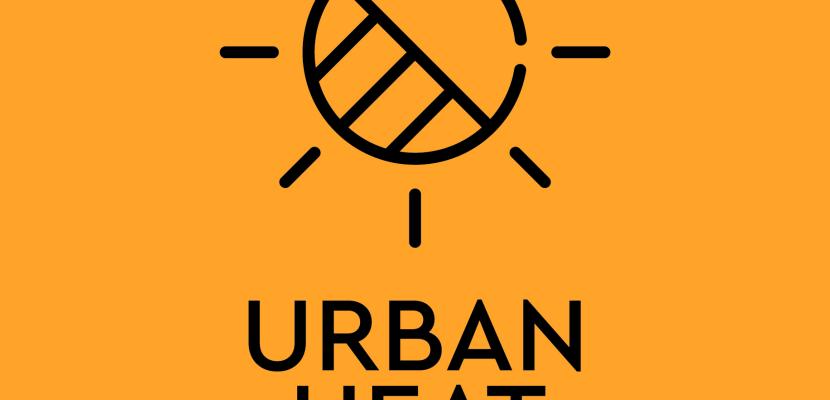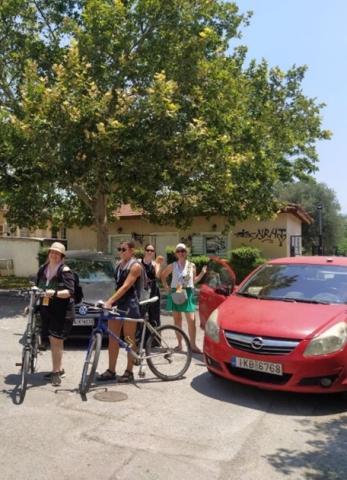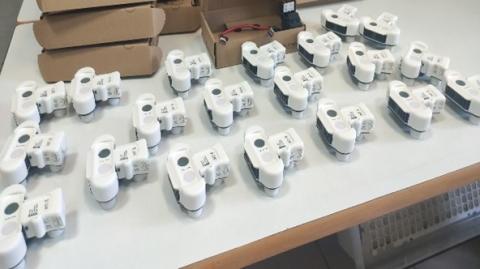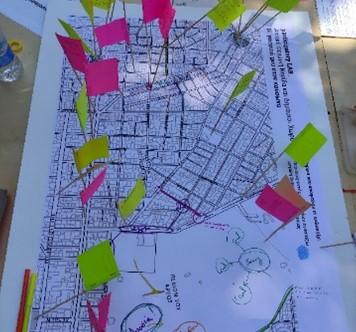
URBAN HEAT WATCH. Urban Green and Climate Resilience Observatory

About this good practice
The main challenge is to collectively map the inequalities in heat and green in the urban environment of a Meditteranean Metropolis. The main goal is to co-produce public policies regarding urban green, by collectively drafting two Measures of the ReCCAP. A multiple-scale and multi-function approach is necessary to assess, plan, and implement urban green infrastructure at a local scale.
Objectives:
Innovative technologies (sensors/mini weather stations, thermal cameras, GIS, RS) and practices are tested for mapping feelings of discomfort in the heatwave, the population's vulnerability to extreme heatwave, and mapping inequalities of different neighborhoods towards heat.
UHW establishes and mainstreams participatory citizen science in climate change adaptation for urban green planning in the Metropolitan context. A participatory citizen science Heat Mapping Campaign is implemented at Metropolitan Athens area, in and around diverse Urban Green Spaces and vulnerable neighborhoods in the Athens Metropolitan Area.
Stakeholders:
Leading partner: Agricultural University of Athens
Partner: Region of Attica
Associate partners: Panhellenic Association of Professional Landscape Engineers & Green Businesses (PEEGEP) and IFLA Europe
Participatory LAB: the community that facilitated the participatory processes.
Beneficiaries:
Municipalities and citizens of the Athens Metropolitan Area
Urban Green Managing authorities
Expert opinion
The Urban Heat Watch (UHW) project is a participatory citizen science initiative aimed at addressing urban heat and green space inequalities in Athens, Greece. Led by the Agricultural University of Athens and funded by Greece’s Green Fund (€200,000), the project combines advanced technologies—including sensors, GIS, and thermal cameras—with citizen engagement to map heat vulnerability and discomfort across neighborhoods. The initiative actively involves citizens in the public policy process for urban green planning, emphasising social and environmental equity. Key outcomes include localised data to inform resilient urban strategies, enhanced participatory governance, and improved urban green infrastructure. The UHW project serves as a model for European cities, demonstrating how participatory citizen science can address urban climate challenges—such as heat vulnerability and green space inequalities—while promoting environmental justice.
Resources needed
The Green Fund (Greece) funded the project, the initial cost is approximately 200.000€. An interdisciplinary team is necessary.
An average of 30.000€ is the cost for the participatory citizen science campaigns (annually), and 20.000 is the co-production of the public policy process.
Evidence of success
Resilient strategies and adaptation plans rely on the accuracy and availability of local data. The collective knowledge from experts and pertinent authorities, as well as the users' empirical perceptions obtained through participatory actions, are crucial. The proposed good practice can expand the spatial and temporal coverage at the Metropolitan scale and, at the same time, design green infrastructures at a neighbourhood scale.
Potential for learning or transfer
URBAN HEAT WATCH offers an innovative approach to addressing urban heat and green space inequalities.
Leveraging advanced technologies like vehicle-mounted mini weather stations, drones, and thermal cameras provides precise data on heat discomfort patterns and green space distribution, enabling evidence-based decision-making. The project’s focus on social and environmental equity ensures that climate policies prioritise vulnerable populations, addressing both environmental and social resilience.
Co-production of public policies through participatory processes promotes inclusive governance, fostering trust and accountability. Additionally, digital tools for visualising heat inequalities enhance transparency and public engagement, offering replicable protocols for other regions.
This holistic, technology-driven, and community-focused approach provides a scalable pathway for regions aiming to improve urban resilience and promote environmental justice in the face of climate challenges.
Further information
Images
Website
Good practice owner
You can contact the good practice owner below for more detailed information.



